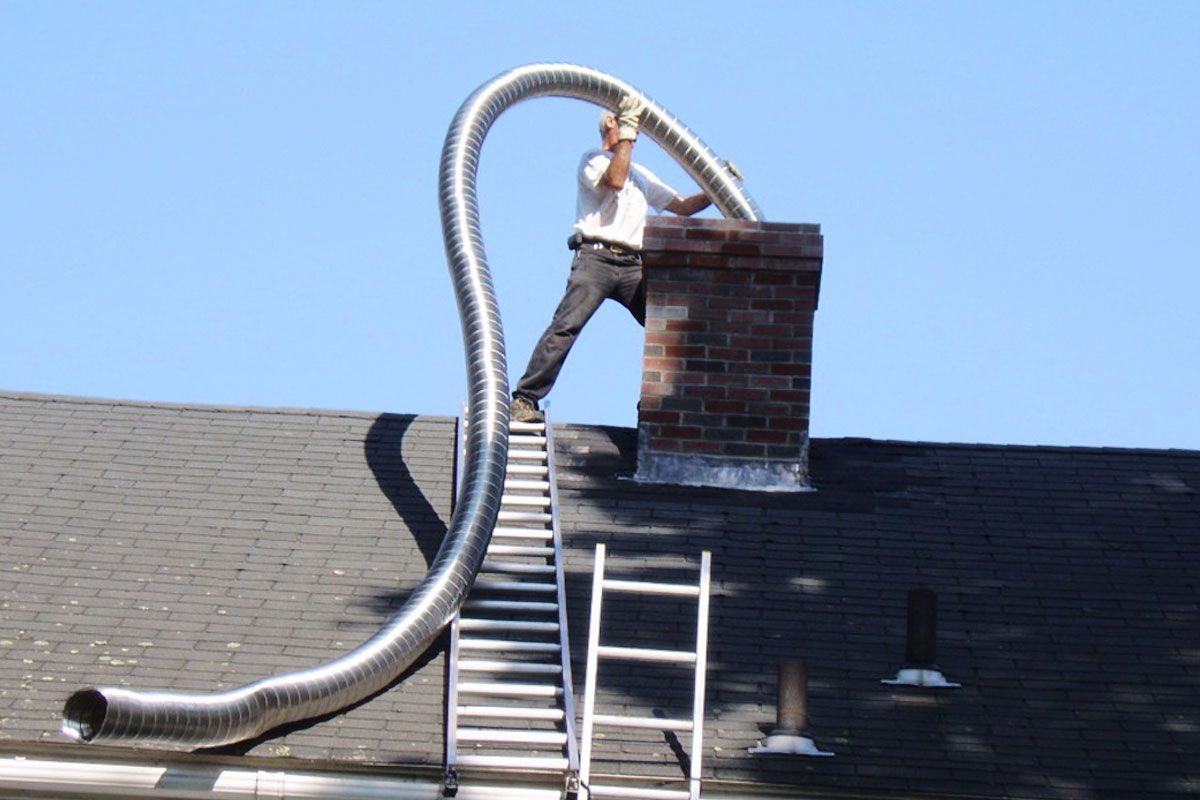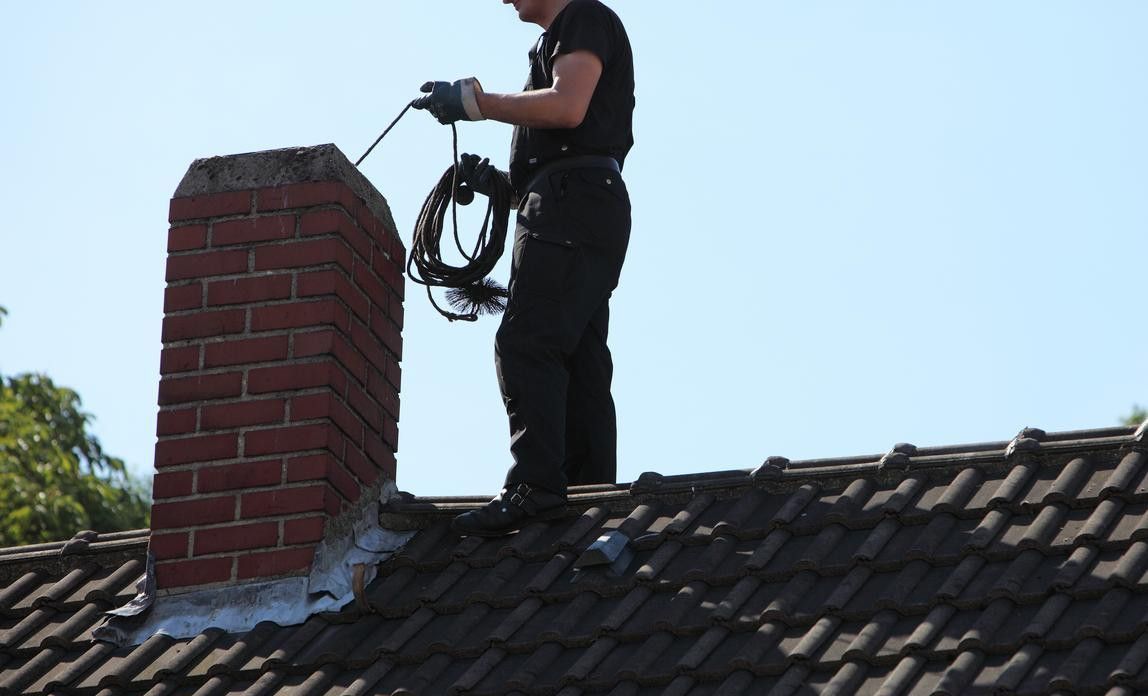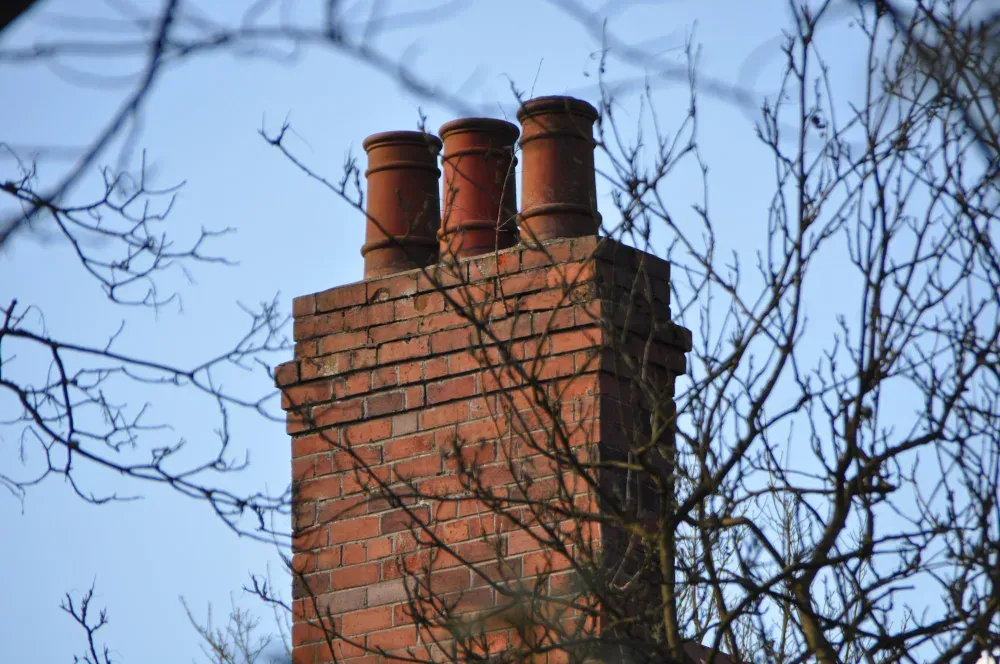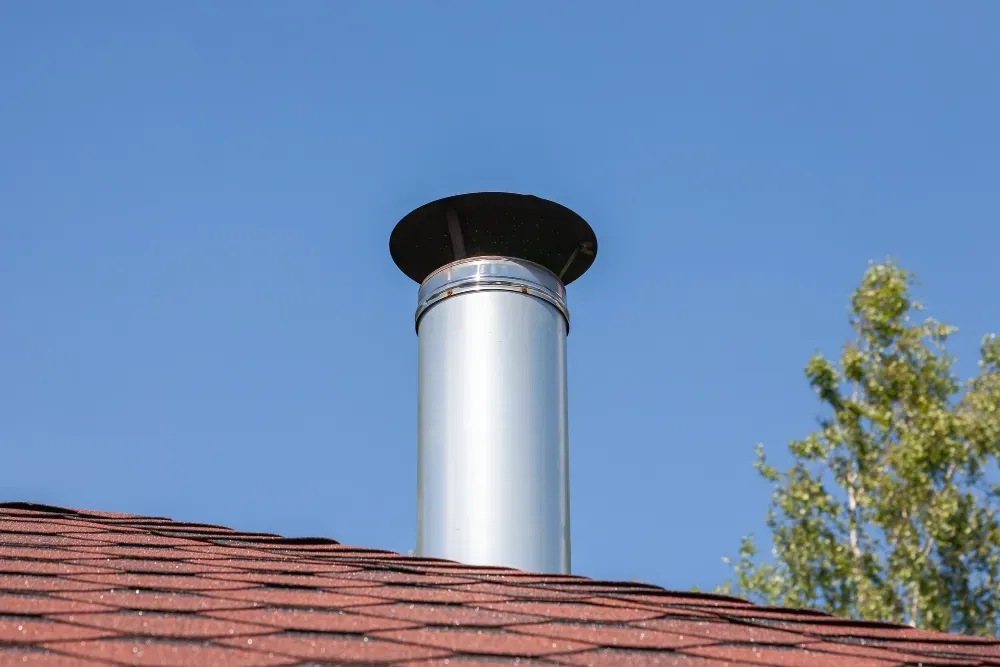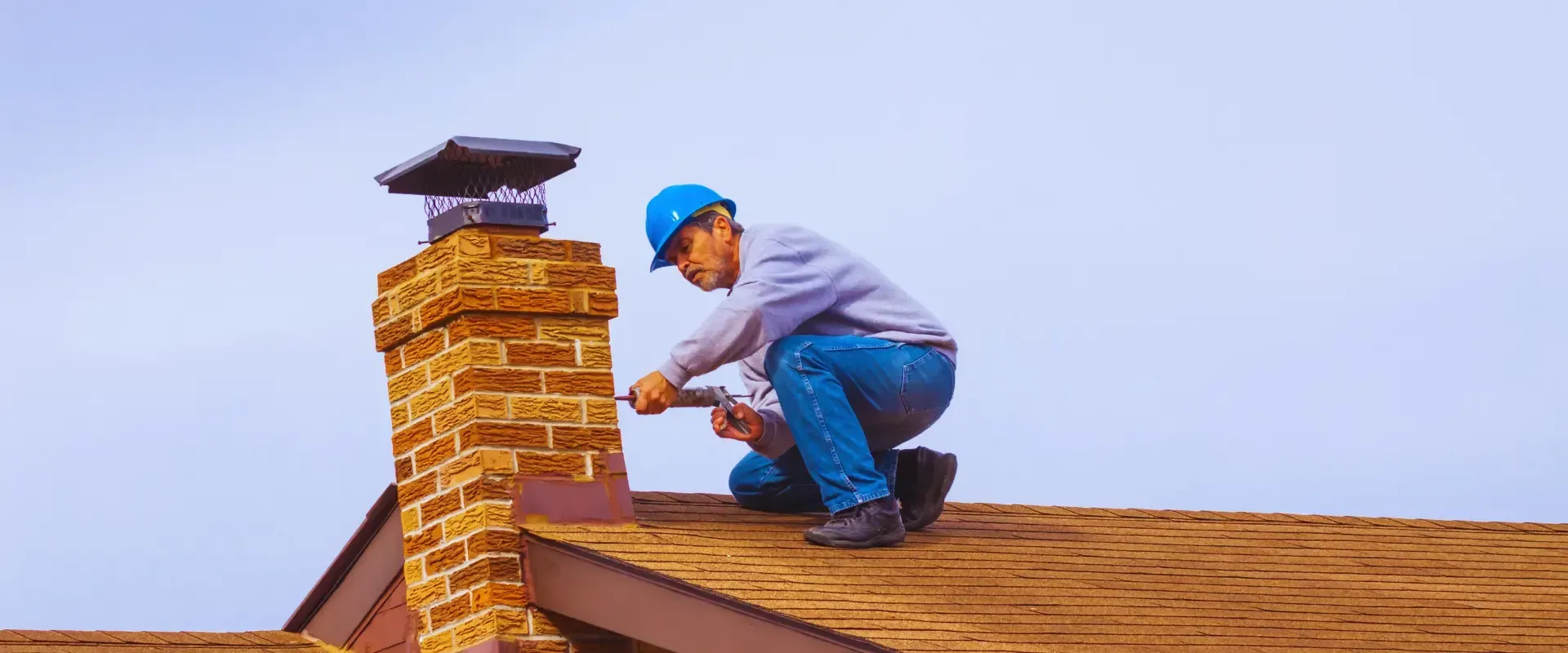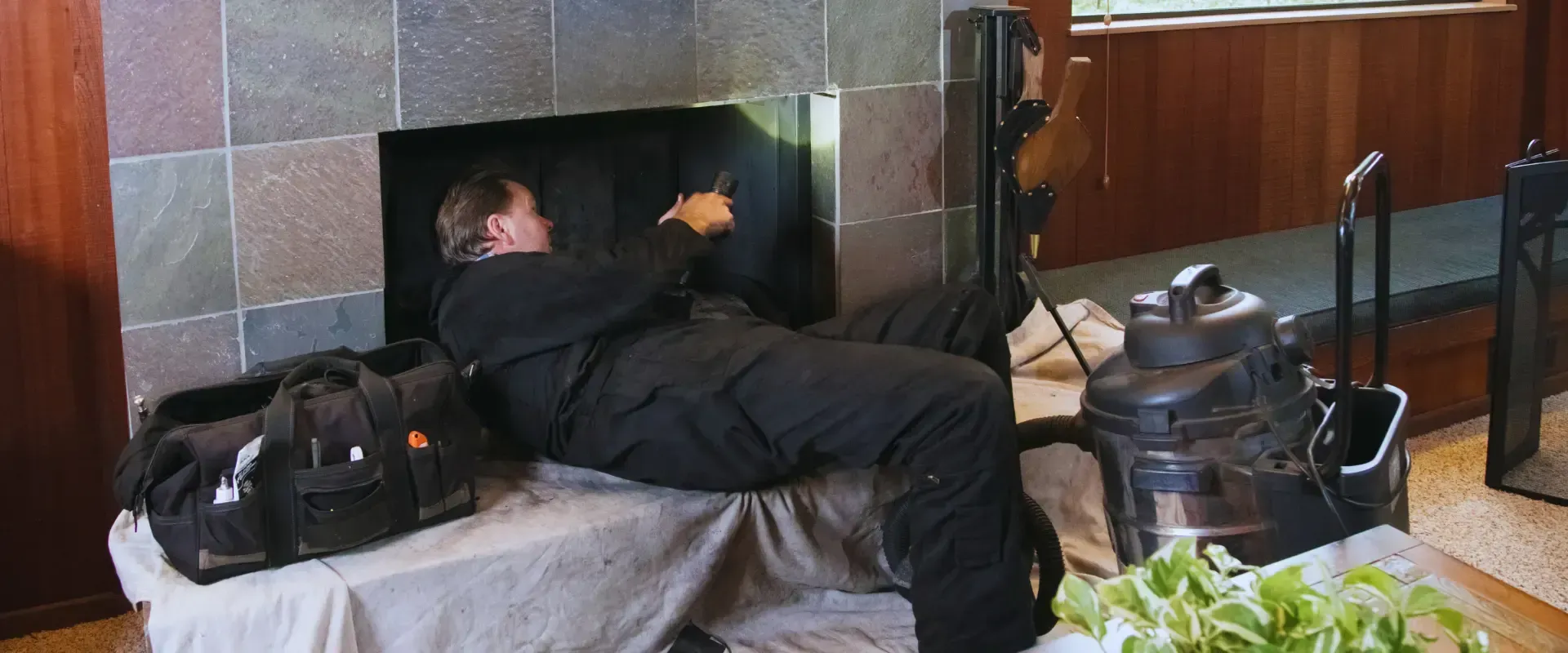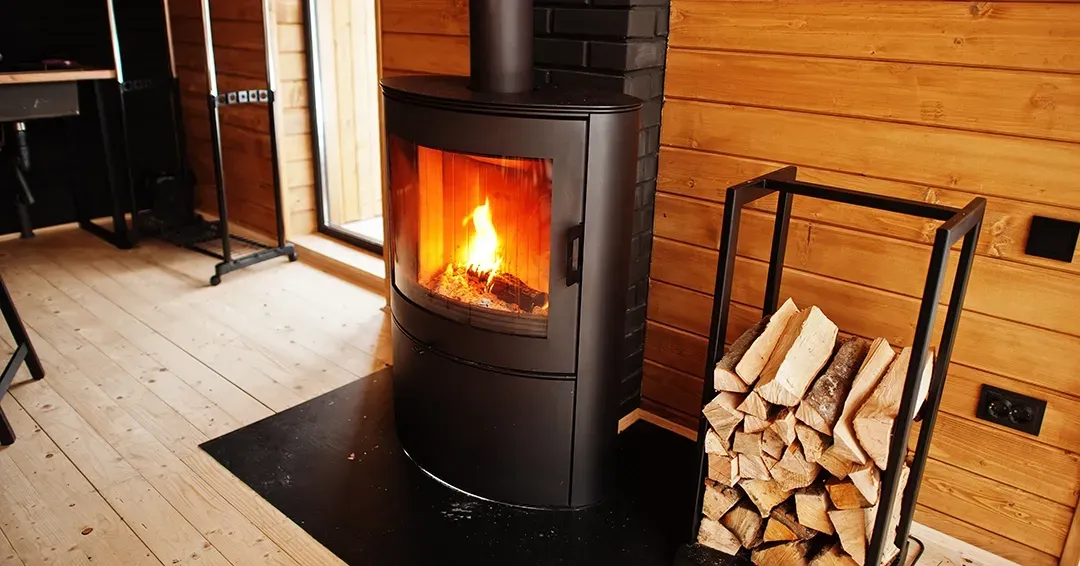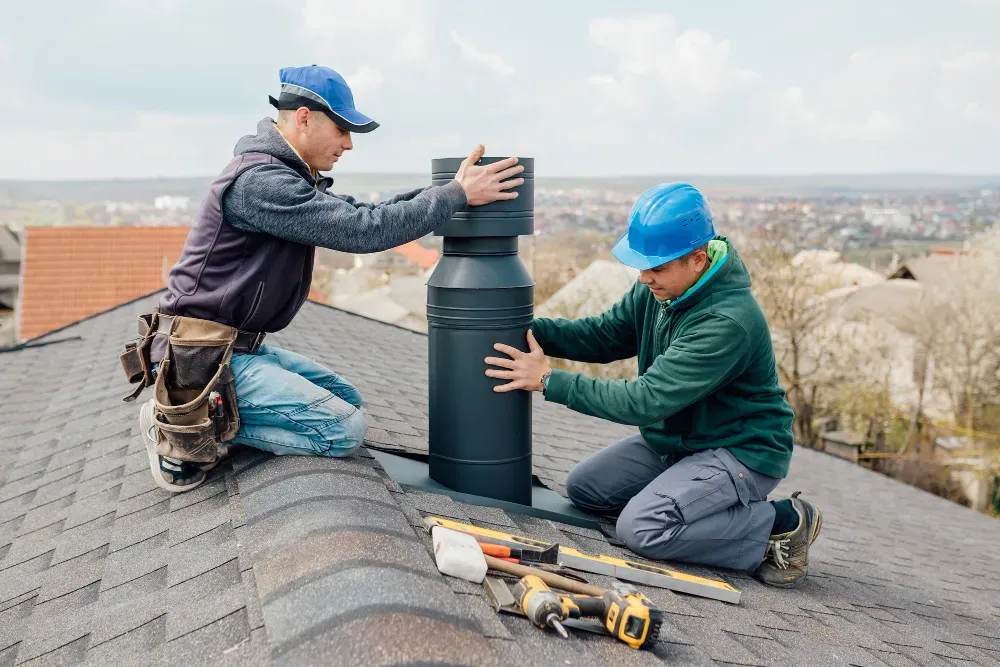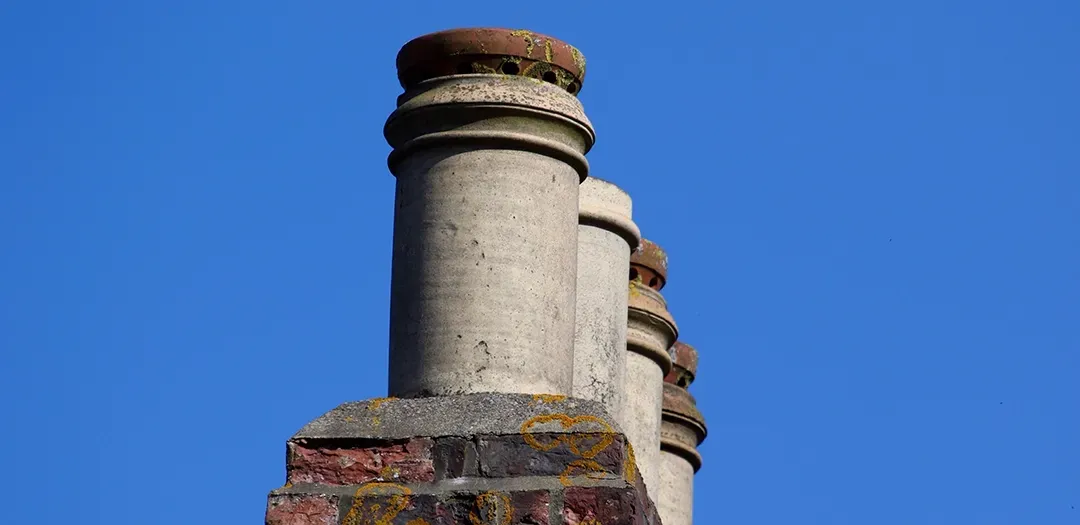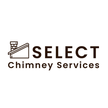Help! My Chimney is Filled with Soil: A Maine Homeowner's Guide to Chimney Disasters
Last spring, I noticed something wasn't quite right when I tried to start my first fire of the season in my South Portland home. Smoke began backing up into my living room, and when I had my flashlight pointed up the chimney, my heart sank – it was packed with soil! As someone who's lived through this nightmare, I want to share my experience and help you understand exactly what you're dealing with.
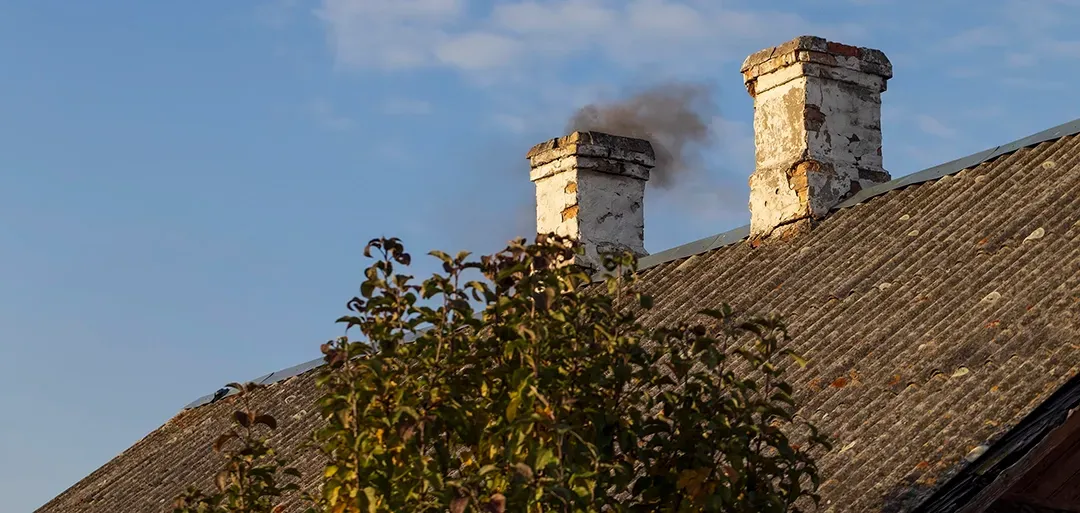
Understanding How Soil Gets into Your Chimney
Living in Maine or New Hampshire means dealing with unique challenges when it comes to chimney maintenance. Our harsh winters and wet springs create perfect conditions for chimney problems. After consulting with professional chimney experts, I learned that soil in chimneys usually comes from:
- Deteriorating chimney caps
- Animal activity (yes, those industrious squirrels!)
- Collapsed internal masonry
- Years of debris accumulation
The Hidden Dangers of Soil-Blocked Chimneys
Safety Concerns
When I discovered my soil-filled chimney, I quickly learned about several serious risks:
- Carbon monoxide buildup
- Restricted airflow
- Potential chimney fires
- Structural weakness
Property Damage Risks
The problems don't stop at safety concerns. A soil-blocked chimney can lead to:
- Water damage to surrounding walls
- Foundation deterioration
- Brick and mortar damage
- Interior wall staining
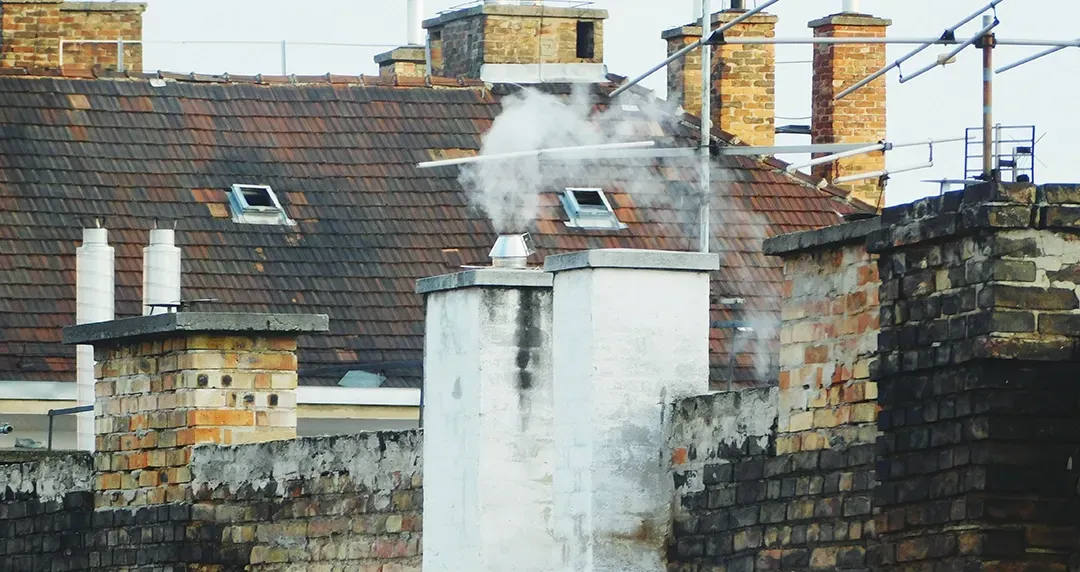
Assessing the Situation
Initial Inspection Tips
When I first discovered my chimney problem, I learned some basic steps for evaluation:
- Safe Visual Inspection
- Use a bright flashlight
- Look for daylight from below
- Check for moisture around the fireplace
- Note any odd smells
- Document Everything
- Take clear photos
- Note when you first noticed issues
- Record any recent weather events
"Never attempt to climb onto your roof or insert cleaning tools into your chimney yourself. What looks like a simple soil blockage could be masking serious structural issues." - Master Chimney Sweep, New England Chimney Association
Professional Assessment
After my initial panic, I contacted certified chimney professionals who checked for:
- Extent of soil blockage
- Structural integrity
- Water damage
- Masonry condition
- Cap and crown damage
Solutions and Clean-up Processes
Emergency Steps
If you discover soil in your chimney, here's what I learned to do immediately:
- Stop Using the Fireplace
- Close the damper
- Contact a professional
- Document everything for insurance
- Check carbon monoxide detectors
Professional Cleaning Methods
The cleanup process typically involves:
Equipment Used:
- Industrial vacuums
- Specialized brushes
- Camera inspection systems
- Debris collection systems
Process Overview:
- Initial camera inspection
- Top-down cleaning
- Bottom-up cleaning
- Debris removal
- Final inspection
Timeline Expectations:
- Simple blockages: 2-4 hours
- Complex cases: 1-2 days
- Full restoration: Up to 1 week
Special Considerations for Historic Homes
Living in New England means many of us have historic homes. My neighbor's 1800s colonial required extra care:
- Historical material preservation
- Special cleaning techniques
- Documentation requirements
- Preservation board approvals
Prevention Strategies
Regular Maintenance Tips
After my experience, I follow this maintenance schedule:
Seasonal Checklist:
- Spring inspection
- Summer repairs
- Fall preparation
- Winter monitoring
Monthly Checks:
- Visual inspection
- Moisture monitoring
- Cap condition
- Flashing inspection
Weather Protection
For our harsh Maine and New Hampshire winters, I've learned these protection strategies:
- Cap Installation
- Stainless steel construction
- Custom sizing
- Professional installation
- Annual inspection
- Flashing Maintenance
- Regular sealing
- Rust prevention
- Professional inspection
- Immediate repairs
Cost Considerations
Cleaning Expenses
Based on my experience and research in the Maine/NH area:
Service TypePrice RangeDurationEmergency Cleaning$300-$6002-4 hoursFull Inspection$150-$3001-2 hoursStructural Repair$1,000-$5,0001-5 daysCap Installation$200-$5001-2 hours
Prevention Investments
Smart investments I've made to prevent future issues:
- Annual Maintenance Contract
- Regular inspections
- Priority service
- Discount on repairs
- Peace of mind
- Quality Materials
- Stainless steel cap
- Water repellent treatment
- Professional-grade sealants
Choosing Professional Help
Qualification Checks
When selecting a chimney service, I recommend checking:
- CSIA certification
- Local licenses
- Insurance coverage
- References
- Online reviews
Learn more about our qualifications
Service Standards
Look for companies that provide:
- Written inspections
- Photo documentation
- Clear estimates
- Warranty information
- Emergency services
Key Takeaways
- Act quickly when discovering soil in your chimney
- Always hire certified professionals
- Invest in prevention
- Maintain regular inspections
- Keep documentation
- Schedule regular maintenance
FAQ Section
Q: How long can I wait before addressing soil in my chimney? A: Don't wait at all. Contact a professional immediately to prevent safety hazards and additional damage.
Q: Will my homeowner's insurance cover chimney cleaning? A: It depends on the cause. Document everything and contact your insurance provider promptly.
Q: How often should I have my chimney inspected in Maine/NH? A: Annual inspections are recommended, with additional checks after severe weather events.
Q: What's the best time for chimney maintenance in New England? A: Late spring or early summer, after winter damage but before the next burning season.
Q: How can I prevent soil from entering my chimney? A: Install a quality cap, maintain your crown, and schedule regular inspections with qualified professionals.
Conclusion
Finding soil in your chimney can be scary – I know because I've been there. But with prompt action and professional help, it's a solvable problem. Here in Maine and New Hampshire, our chimneys face unique challenges from our weather and historic architecture. Regular maintenance and quick response to issues are key to keeping your home safe and your chimney functioning properly.
Remember, when it comes to chimney maintenance, investing in prevention is always cheaper than dealing with emergencies. Don't wait until you have smoke backing up into your living room like I did. Schedule a professional inspection today and enjoy your fireplace with peace of mind.
"An ounce of prevention in chimney maintenance saves pounds of cure in repair costs." - New England Chimney Safety Council
